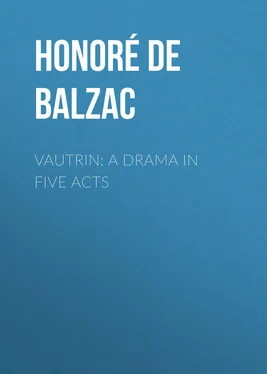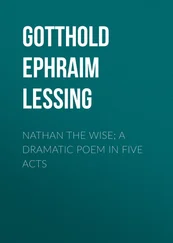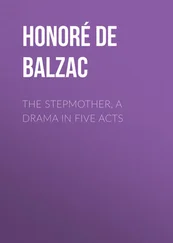Honoré Balzac - Vautrin - A Drama in Five Acts
Здесь есть возможность читать онлайн «Honoré Balzac - Vautrin - A Drama in Five Acts» — ознакомительный отрывок электронной книги совершенно бесплатно, а после прочтения отрывка купить полную версию. В некоторых случаях можно слушать аудио, скачать через торрент в формате fb2 и присутствует краткое содержание. Жанр: literature_19, foreign_antique, foreign_prose, на английском языке. Описание произведения, (предисловие) а так же отзывы посетителей доступны на портале библиотеки ЛибКат.
- Название:Vautrin: A Drama in Five Acts
- Автор:
- Жанр:
- Год:неизвестен
- ISBN:нет данных
- Рейтинг книги:4 / 5. Голосов: 1
-
Избранное:Добавить в избранное
- Отзывы:
-
Ваша оценка:
- 80
- 1
- 2
- 3
- 4
- 5
Vautrin: A Drama in Five Acts: краткое содержание, описание и аннотация
Предлагаем к чтению аннотацию, описание, краткое содержание или предисловие (зависит от того, что написал сам автор книги «Vautrin: A Drama in Five Acts»). Если вы не нашли необходимую информацию о книге — напишите в комментариях, мы постараемся отыскать её.
Vautrin: A Drama in Five Acts — читать онлайн ознакомительный отрывок
Ниже представлен текст книги, разбитый по страницам. Система сохранения места последней прочитанной страницы, позволяет с удобством читать онлайн бесплатно книгу «Vautrin: A Drama in Five Acts», без необходимости каждый раз заново искать на чём Вы остановились. Поставьте закладку, и сможете в любой момент перейти на страницу, на которой закончили чтение.
Интервал:
Закладка:
Honoré de Balzac
Vautrin: A Drama in Five Acts
AUTHOR'S PREFACE
It is difficult for the playwright to put himself, five days after the first presentation of his piece, in the situation in which he felt himself on the morning after the event; but it is still more difficult to write a preface to Vautrin , to which every one has written his own. The single utterance of the author will infallibly prove inferior to so vast a number of divergent expressions. The report of a cannon is never so effective as a display of fireworks.
Must the author explain his work? Its only possible commentator is M.
Frederick Lemaitre.
Must he complain of the injunction which delayed the presentation of his play? That would be to betray ignorance of his time and country. Petty tyranny is the besetting sin of constitutional governments; it is thus they are disloyal to themselves, and on the other hand, who are so cruel as the weak? The present government is a spoilt child, and does what it likes, excepting that it fails to secure the public weal or the public vote.
Must he proceed to prove that Vautrin is as innocent a work as a drama of Berquin's? To inquire into the morality or immorality of the stage would imply servile submission to the stupid Prudhommes who bring the matter in question.
Shall he attack the newspapers? He could do no more than declare that they have verified by their conduct all he ever said about them.
Yet in the midst of the disaster which the energy of government has caused, but which the slightest sagacity in the world might have prevented, the author has found some compensation in the testimony of public sympathy which has been given him. M. Victor Hugo, among others, has shown himself as steadfast in friendship as he is pre-eminent in poetry; and the present writer has the greater happiness in publishing the good will of M. Hugo, inasmuch as the enemies of that distinguished man have no hesitation in blackening his character.
Let me conclude by saying that Vautrin is two months old, and in the rush of Parisian life a novelty of two months has survived a couple of centuries. The real preface to Vautrin will be found in the play, Richard-Coeur-d'Eponge , 1 1 A play never enacted or printed.
which the administration permits to be acted in order to save the prolific stage of Porte-Saint-Martin from being overrun by children.
PARIS, May 1, 1840.
PERSONS OF THE PLAY
Jacques Collin, known as Vautrin
The Duc de Montsorel
The Marquis Albert de Montsorel, son to Montsorel
Raoul de Frascas
Charles Blondet, known as the Chevalier de Saint-Charles
Francois Cadet, known as the Philosopher
Fil-de-Soie
Buteux
Philippe Boulard, known as Lafouraille
A Police Officer
Joseph Bonnet, footman to the Duchesse de Montsorel
The Duchesse de Montsorel (Louise de Vaudrey)
Mademoiselle de Vaudrey, aunt to the Duchesse de Montsorel
The Duchesse de Christoval
Inez de Christoval, Princesse D'Arjos
Felicite, maid to the Duchesse de Montsorel
Servants, Gendarmes, Detectives, and others
SCENE: Paris
TIME: 1816, after the second return of the Bourbons.
ACT I
The Duchess
Ah! So you have been waiting for me! How very good of you!
Mademoiselle de Vaudrey
What is the matter, Louise? This is the first time in the twelve years of our mutual mourning, that I have seen you cheerful. Knowing you as
I do, it makes me alarmed.
The Duchess I cannot help showing my unhappiness, and you, who have shared all my sorrows, alone can understand my rapture at the faintest gleam of hope.
Mademoiselle de Vaudrey
Have you come upon any traces of your lost son?
The Duchess
He is found!
Mademoiselle de Vaudrey
Impossible! When you find out your error it will add to your anguish.
The Duchess A child who is dead has but a tomb in the heart of his mother; but the child who has been stolen, is still living in that heart, dear aunt.
Mademoiselle de Vaudrey
Suppose you were overheard!
The Duchess I should not care. I am setting out on a new life, and I feel strong enough to resist even the tyranny of De Montsorel.
Mademoiselle de Vaudrey After twenty-two years of mourning, what possible occurrence can give you ground for hope?
The Duchess I have much more than hope! After the king's reception, I went to the Spanish ambassador's, where I was introduced to Madame de Christoval. There I saw a young man who resembled me, and had my voice. Do you see what I mean? If I came home late it was because I remained spellbound in the room, and could not leave until he had gone.
Mademoiselle de Vaudrey
Yet what slight warrant you had for your elation!
The Duchess Is not a revelation such as that more than sufficient warrant for the rapture of a mother's heart? At the sight of that young stranger a flame seemed to dart before my yes; his glance gave me new life; I felt happy once more. If he were not my son, my feelings would be quite unaccountable.
Mademoiselle de Vaudrey
You must have betrayed yourself!
The Duchess Yes, perhaps I did! People doubtless noticed us; but I was carried away by an uncontrollable impulse; I saw no one but him, I wished to hear him talk, and he talked with me, and told me his age. He is twenty-three, the same age as Fernand!
Mademoiselle de Vaudrey
And was the duke present?
The Duchess Could I give a thought to my husband? I listened only to this young man, who was talking with Inez. I believe they are in love with each other.
Mademoiselle de Vaudrey Inez, who is engaged to your son, the marquis? And do you think the warm reception given by her to his son's rival could escape the duke's notice?
The Duchess Of course not, and I quite see the dangers to which Fernand is exposed. But I must not detain you longer; I could talk to you about him till morning. You shall see him. I have told him to come at the hour the duke goes to the king's, and then we will question him about his childhood.
Mademoiselle de Vaudrey For goodness' sake, calm yourself; you will never be able to sleep this night. And send Felicite to bed, she is not accustomed to these late hours. (She rings the bell.)
Felicite (entering the room)
His grace the duke has come in with his lordship the marquis.
The Duchess I have already told you, Felicite, never to inform me of his grace's movements. (Exit Felicite.)
Mademoiselle de Vaudrey I should hate to rob you of an illusion which causes you such happiness; but when I see the height of expectation to which you have soared, I fear a terrible fall for you. The soul, like the body, is bruised by a fall from an excessive height, and you must excuse my saying that I tremble for you.
The Duchess While you fear the effect of despair for me, I fear that of overwhelming joy.
Mademoiselle de Vaudrey (watching the duchess go out)
If she should be deceived, she might lose her senses.
The Duchess (re-entering the room)
Fernand, dear aunt, calls himself Raoul de Frescas. (Exit.)
Mademoiselle de Vaudrey (alone) She does not see that the recovery of her son would be a miracle. All mothers believe in miracles. We must keep watch over her. A look, a word might ruin her, for if she is right, if God restores her son to her, she is on the brink of a catastrophe more frightful even than the deception she had been practicing. Does she think she can dissemble under the eyes of women?
Читать дальшеИнтервал:
Закладка:
Похожие книги на «Vautrin: A Drama in Five Acts»
Представляем Вашему вниманию похожие книги на «Vautrin: A Drama in Five Acts» списком для выбора. Мы отобрали схожую по названию и смыслу литературу в надежде предоставить читателям больше вариантов отыскать новые, интересные, ещё непрочитанные произведения.
Обсуждение, отзывы о книге «Vautrin: A Drama in Five Acts» и просто собственные мнения читателей. Оставьте ваши комментарии, напишите, что Вы думаете о произведении, его смысле или главных героях. Укажите что конкретно понравилось, а что нет, и почему Вы так считаете.












